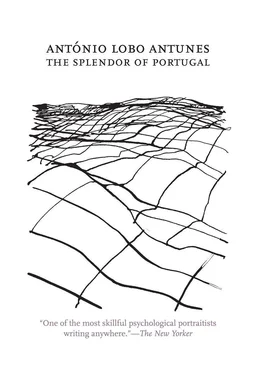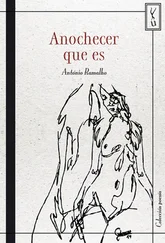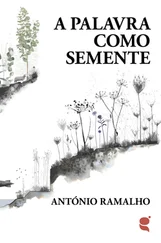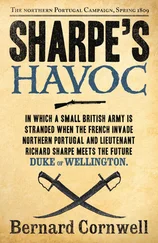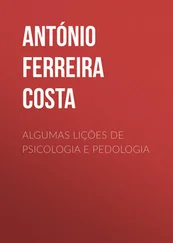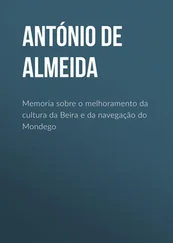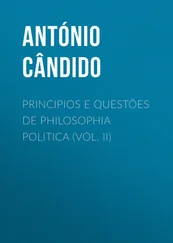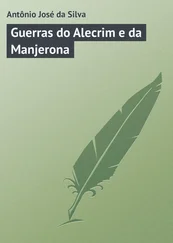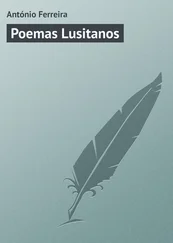António Antunes - The Splendor of Portugal
Здесь есть возможность читать онлайн «António Antunes - The Splendor of Portugal» весь текст электронной книги совершенно бесплатно (целиком полную версию без сокращений). В некоторых случаях можно слушать аудио, скачать через торрент в формате fb2 и присутствует краткое содержание. Год выпуска: 2011, Издательство: Dalkey Archive Press, Жанр: Современная проза, на английском языке. Описание произведения, (предисловие) а так же отзывы посетителей доступны на портале библиотеки ЛибКат.
- Название:The Splendor of Portugal
- Автор:
- Издательство:Dalkey Archive Press
- Жанр:
- Год:2011
- ISBN:нет данных
- Рейтинг книги:3 / 5. Голосов: 1
-
Избранное:Добавить в избранное
- Отзывы:
-
Ваша оценка:
- 60
- 1
- 2
- 3
- 4
- 5
The Splendor of Portugal: краткое содержание, описание и аннотация
Предлагаем к чтению аннотацию, описание, краткое содержание или предисловие (зависит от того, что написал сам автор книги «The Splendor of Portugal»). Если вы не нашли необходимую информацию о книге — напишите в комментариях, мы постараемся отыскать её.
The Splendor of Portugal — читать онлайн бесплатно полную книгу (весь текст) целиком
Ниже представлен текст книги, разбитый по страницам. Система сохранения места последней прочитанной страницы, позволяет с удобством читать онлайн бесплатно книгу «The Splendor of Portugal», без необходимости каждый раз заново искать на чём Вы остановились. Поставьте закладку, и сможете в любой момент перейти на страницу, на которой закончили чтение.
Интервал:
Закладка:
don’t worry we’re going to start planting on Tuesday
and I walk into the kitchen, a hoof here a hoof there, tripping over my entrails, toppling over in front of the oven like a dead calf.
24 December 1995
On the desk in the office there was a paperweight, a glass ball with reindeer inside pulling a sleigh and seated in the sleigh a bearded fat man in a woolen suit and red cap. If you turned the ball upside down and right-side up again, snow swirled around the bearded man’s sleigh, dusting snow onto the cap, the reindeer, and the microscopic pine tree in the background, my mother put the paperweight on the desk in between a picture of us in Durban and an ostrich made out of pau-santo wood with transparent stones for eyes, she explained
“It’s Santa Claus”
and I didn’t understand how that little plastic figure was able to leave its glass prison, full of water with an air bubble at the top, in order to give us the gifts that appeared in the morning in the dining room, with our names on tags taped to the wrapping paper, and much less understood that Santa Claus bought them at stores in Luanda
(her fingernail wasn’t able to scrape off the price tag or the store’s label completely)
since it seemed to me unlikely for a couple of reindeer and a sleigh to slide down the coastline under the palm trees in a swirl of snow when it was thirty-eight degrees Celsius in the shade and the houses softened in the heat, people sweating on the boardwalk, and on the beach the sea was boiling, fat bubbling to the top like a soup on the stove. My mother maintained that Santa Claus came down the chimney with a bag full of toy trumpets, colored pencils, and cap guns, a strange story since the chimney led down from the roof and opened right onto the stove top, putting Santa Claus in a dangerous position next to the duck and rice in the oven, and moreover I couldn’t understand how such a fat gentleman could fit down a dirty, skinny pipe: as far as I can remember during my childhood, the only thing that ever came down the chimney was an errant canary that emerged from it one morning fluttering around the kitchen in its sooty anguish, chirping desperately and finally escaping out toward the backyard, scattering ash everywhere, leaving dark smudges on the clothes that were drying on the line and turning up dead the next day in the pot of azaleas, spread out on its back, its beak open, skinny because of its sick, deflated lungs. Still my mother reassured us that Santa Claus, very experienced and full of tricks
(it was hard for me to imagine kindness and trickery combined in a single person, from my point of view those characteristics were incompatible)
possessed secret wiles that were capable of solving what were, to him, the very simple problems of narrow chimneys and malevolent ovens, always eager to roast anyone who fell into their bellies along with the red potatoes, wiles that my mother, judging by her knowing smile, undoubtedly had access to as well but refused to explain, and since it was November
(thunder boomed in Baixa de Cassanje with the sound of pianos crashing down invisible stairwells, power lines snapped and flailed about, scattering sparks that set fire to the acacia trees)
we spent the rest of the afternoon observing the paperweight, hoping that Santa Claus would decide to take a practice run, with wrapping paper and reindeer and snow, departing from the glass sphere on his sleigh, riding up to the rooftop, first inserting one boot and then the beard and then his entire plump body into the opening where the smoke came out. We turned the paperweight upside down a number of times, trying to stoke his vanity with the whirling white specks, and yet the little creature stubbornly remained motionless, holding the reins with his gloved hands, staring at the tiny pine tree in front of him with absurd concentration. We decided to break the glass with the hammer from the toolbox in an effort to facilitate his endeavors.
(some people are so lazy and self-indulgent that even breaking through a little glass is a chore for them)
Rui, who’d been sent for the hammer, preferred the wrench used for tightening leaky faucets, we had the paperweight on the ground and the wrench in the air when my father opened the door, and in an instant the paperweight was back on the desk, the snow, mocking us, swirled in the water, and we were grounded, sent to our rooms looking out the window at the rainy sky, dark as night at four in the afternoon and the sunflowers bent from the wind, alarmed at the horrible threat of not getting any colored pencils or cap guns for Christmas. I have the globe with me here in Ajuda, on the shelf in the living room for my brother and sister to see, I just put the sequined star on top of the tree, put the gifts down near the stand, a bottle of damn expensive perfume for Clarisse who’s no fool and can spot a pinchbeck from across the room, an overstock bargain necktie, very colorful the way he likes it for Rui, who’s a fool
and since he won’t notice it’s all the same to him and I save some money
for the most part, his epilepsy an earthworm gnawing holes in his head, my mother used to take him to the doctor in Malanje, when she returned home with him, even though she’d bought a handkerchief for herself, you could tell she’d been crying, she left Rui in the kitchen went upstairs and took ages to come down to the dinner table, her eyes swollen and her voice worn-out, piercing everything with her stare but not noticing anything at all, refusing to eat the soup, refusing to eat the fish, lying on her bed at night, you could hear her sobbing mixed with the thousands of other noises without origin or cause that inhabit the silence, I shook Clarisse and Clarisse
“It’s just a bird”
yet it wasn’t a bird or a fox or the tractor drivers mourning a death in the workers’ huts or the fever-breath of the cotton, it was the grandfather clock with Roman numerals in the hallway that robbed us of our certainty, the solemn copper pendulum swinging to the right and to the left in the depths of it, it was the straw in the couch cushion crackling, my mother’s voice from far away and up close, to my father
“The doctor said that it’s a hereditary condition I was the one who gave it to him it’s my fault”
and my father, as he had almost every ten minutes ever since Rui got sick, taking a bottle of whiskey out of the bedside table
there wasn’t a drawer without a bottle of whiskey in it, the medic from Chiquita warned him that if he kept drinking like this he wouldn’t last another year
“He won’t even last a year Mr. Amadeu will do himself in with cirrhosis in no time flat”
and in the end he lasted eight, eight years walking with canes because the alcohol had attacked his legs, sitting in the armchair, a blanket over his knees, he never stopped drinking, my father searching for a glass you could hear the bottleneck clink against the rim of it, putting away the bottle, Clarisse
“It’s just a bird it’s not mother at all it’s a bird listen”
the clock, that selfish thing, silent, coughing, then breaking in with its arrogant clanging, disdainful of the world, the bats scolding each other in the poplars, Rui in the other bedroom with Josélia, the small lamp still burning because of his attacks, very calm at first and then all of a sudden his face like a ghost, biting his tongue and frothing at the mouth, the women in the workers’ huts as restless as brooding hens
my mother promised she’d look after Maria da Boa Morte that if Maria da Boa Morte fell ill
the bottle clinking as it would continue to clink for months and months and then even more months, instead of calling Rui to his side, talking to him, going to the doctor with him, my father who never left the house opened the cupboard doors knocking over glasses, knocking over cups, drank with his back to us, tumbled down into the closest chair he could find, feeling ashamed in front of us, ashamed of himself, he sat looking down at his hands until we called him
Читать дальшеИнтервал:
Закладка:
Похожие книги на «The Splendor of Portugal»
Представляем Вашему вниманию похожие книги на «The Splendor of Portugal» списком для выбора. Мы отобрали схожую по названию и смыслу литературу в надежде предоставить читателям больше вариантов отыскать новые, интересные, ещё непрочитанные произведения.
Обсуждение, отзывы о книге «The Splendor of Portugal» и просто собственные мнения читателей. Оставьте ваши комментарии, напишите, что Вы думаете о произведении, его смысле или главных героях. Укажите что конкретно понравилось, а что нет, и почему Вы так считаете.
